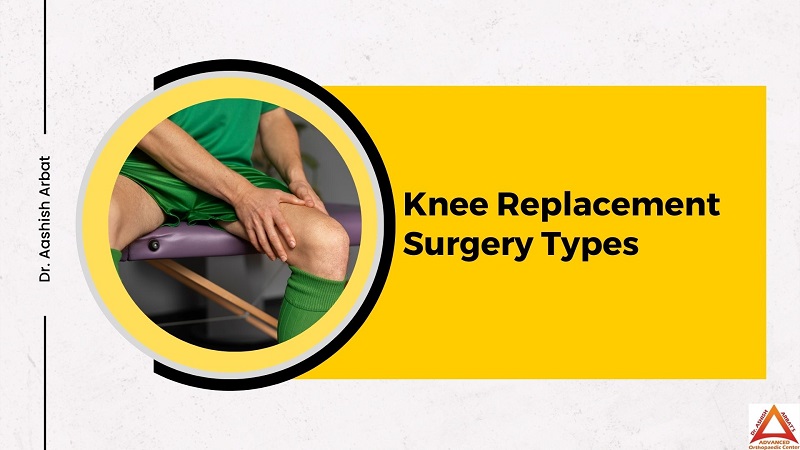
Individuals experiencing limited mobility, severe and persistent knee pain, and functional limitations due to osteoarthritis, knee deformities, post-traumatic arthritis, rheumatoid arthritis, or avascular necrosis is very common these days. Luckily there are various knee replacement surgery types to give you relief.
When your knee has structural damage; you may need surgery. If your knee pain has not responded to supplementary methods of pain relief for structural damage or other conditions, you may need it.
Contents
Types of Knee Surgery and Recovery Time
Whenever we plan to go for a knee surgery the most important thing that bothers us is the recovery time. Now, how long does it take to recover from knee surgery, to put it in simple words, depends on which type of knee surgery you have and how it’s been accomplished. Recovery timelines may differ widely, based on your specific procedure in addition to your age and health condition.
Traditional Total Knee Replacement Surgery
Of the various knee replacement surgery types, this process is referred to as open knee replacement surgery. The surgeon following this procedure makes a large incision across your knee, cutting through tendons, ligaments and muscles to see and access your knee joint. Subsequently, he takes away damaged surface areas in the joint and substitutes them with metal, ceramic or plastic apparatuses.
In this, the patient generally needs to spend about 3 to 6 days in the hospital. You possibly will walk with a walker for the first week or two. Then the surgeon would recommend you to walk with crutches until you can walk unaided or with a cane, this generally occurs within 2 to 3 weeks. By when you can drive depends on when you can bend your leg and operate the gas and brake pedals; generally, this takes 4 to 6 weeks.
If things go fine, you can restart work in about 4 to 6 weeks, only if your job is in sitting position. You may need up to three months before returning to work, in case your work demands much movement. Overall, open knee surgery recovery time is three months. However, it takes six months to a year for full recovery and function of the joint.
Mini-incision Knee Replacement Surgery
In this process the surgeon uses a smaller incision than with traditional open surgery. Besides, there is minimal trauma to tissue, muscles and tendons, specifically the quadriceps tendon attached to the knee.
Accordingly, minimally invasive knee replacement recovery takes less time. You may need to stay in hospital for 1 to 2 days. You may be able to get back to work and normal activities within a couple of weeks.
Partial knee replacement
In this, only the arthritic parts of your knee are substituted, rather than the whole joint. Hence, you may return to work within a couple of weeks. You just need to continue physical therapy and home exercises for several weeks until you have complete range of motion and use of your knee.
Osteotomy
This process is followed in early-stage of osteoarthritis where damage is there on only one side of the knee joint. Here, surgeons cut and reshape part of the femur (thigh bone) or tibia (shin bone) to release knee joint pressure, correct misalignment, and possibly extend the lifespan of your knee.
A patient is expected to spend 1 to 2 days in the hospital and to be on crutches for several weeks. Full recovery may take 3 to 6 months.
You Might Refer Reading: Best Knee Replacement Doctor in Pune
Arthroscopic Knee Surgery
This process includes a small incision to insert an arthroscope. This includes a small camera into your knee joint. The doctor can hence see inside your knee joint space. The surgeon supplements a special surgical instrument through a second small incision to make the essential repairs. As the incisions are so small, time to recover is much shorter than with open knee surgery.
Disadvantages of Knee Replacement Surgery
A substitution knee can never be as good as a natural knee and may have limited range of motion.
- There is a chance of deep vein thrombosis (DVT), anaesthesia complications, contamination, allergic reactions, or nerve impairment
- A substituted knee may wear out over time and necessitate additional surgery.
- The artificial joint may become loose or interrupt, causing pain and variability
- There may be differences in leg length
The Truth About Knee Replacement Surgery
Dr. Aashish Arbat (Top Orthopedic Doctor in Pune) have reveal some facts about knee replacement surgery… Here, below find the truth about knee replacement surgery from his perspective…
- It does not always take years to recover from knee replacement surgery
- Knee replacement surgery doesn’t work for everyone
- There can be dangers of postponing knee replacement surgery
- There would be a few permanent restrictions after knee replacement surgery
- Knee replacement doesn’t guarantee to last forever
Dangers of Delaying Knee Replacement Surgery
- Increased pain and disability that affect the quality of life and mobility
- Damage to surrounding structures, such as muscles, tendons, and ligaments, that support the knee function
- Risk of falls and injuries due to instability and weakness of the knee
- Mental and emotional health impact, such as depression, anxiety, and low self-esteem
Knee Replacement Surgery Cost
The average cost for a knee replacement in India falls somewhere between Rs 1,80,000 to Rs. 4,50,000. The cost includes 4-5 days of hospitalization, operation, post-operation and the cost of physical therapy.
What is the Best Knee Replacement Procedure?
The best type of replacement for a patient depends on how much of the knee is injured. There are several approaches to surgery, counting traditional, robotic-assisted and minimally invasive one. A surgeon can also choose an option considering ligament firmness and other factors, like deformity, prior trauma, or past surgery.
What is the Most Commonly Reported Problem After Knee Replacement Surgery?
One of the most familiar difficulties people experience after knee replacement is a knee stiffness. This can lead to trouble with activities that necessitate a lot of bending, counting sitting in a chair, going down stairs, or getting out of a car.
Choosing Dr. Aashish Arbat: The Best Knee Replacement Doctor in Pune
If you are based at Pune, and looking to know who is the best orthopaedic doctor in Pune? The good news is that Pune has several accomplished joint replacement surgeons. Your search for the best knee replacement surgeon in Pune, definitely comes to an end with Dr. Aashish Arbat. He has over 22 years of experience and is known for his significant contributions in multiple knee replacement surgery types.
Wrapping up
Consult a reputed, dependable knee replacement surgeon, understand the knee replacement surgery types, get your knee replacement done. Say goodbye to knee issues.

